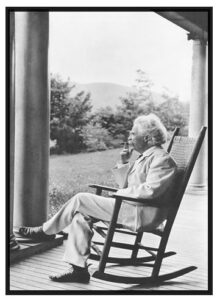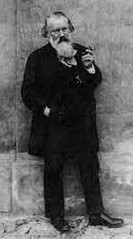Our political discourse is not only more coarse than in the recent past, it also suffers from people disinclined to explain the logic of their positions.
These days an American needs to look hard to find substantive discussions of proposed federal actions that will have significant effects. Asserting a position is one thing. Supporting the assertion with genuine good reasons is another. Federal downsizing, budget levels, infrastructure expenditures, and grants for programs ranging from health care to the arts would benefit from some deep dives into the specifics of what a federal response should be. But with the exception of some third-party experts, or back-bencher members of Congress, or some long-form news stories, we get sound bites rather than details. Our President can get about half way to one generic reason, but not the solid reasoning for a particular decision. Too often the default is the conversion of a substantive issue into an inconsequential battle of political personalities. The scattered debate about bombing Iraq was a rare and only partial exception. Of course, if a leader’s only reasons for a change in policy are spite or retribution, we are probably not going to hear it.
A necessary distinction for understanding political rhetoric is between instrumental talk and expressive talk. As this broad difference suggests, instrumental discussion is focused on the merits of arguments or routes to a compromise for a given proposal. Instrumental talk is not about people or personalities, but about their ideas, values, goals, and whether evidence exists for their claims. Even as it becomes distressingly rare, It is the more substantial rhetorical form that is basic to decision-making in an open society. By contrast, expressive talk is about the theater of policy and its players. For example, do we really have not heard compelling reasons for why funding for the Voice of America was cut, or why NOAA kneecapped, in spite of evidence that it provides essential environmental data to corporations and citizens, And Do we have an  administration position on the total closure of USAID? Or must we accept Elon Musk’s arrogant conclusion based on no evidence that USAID was “a criminal organization?” Even with its life-saving work especially for children, he simply asserted that it was “time for it to die,” and enjoying “the weekend feeding USAID into the wood chipper.” I have not seen other administration arguments for the cuts to these and many other programs. And has any American heard a sustained and compelling explanation for the high tariffs put on our northern neighbor and former ally? It has been a long summer season of drama, but little public discussion.
administration position on the total closure of USAID? Or must we accept Elon Musk’s arrogant conclusion based on no evidence that USAID was “a criminal organization?” Even with its life-saving work especially for children, he simply asserted that it was “time for it to die,” and enjoying “the weekend feeding USAID into the wood chipper.” I have not seen other administration arguments for the cuts to these and many other programs. And has any American heard a sustained and compelling explanation for the high tariffs put on our northern neighbor and former ally? It has been a long summer season of drama, but little public discussion.
National Politics is Personalized
 Expressive communication is centered on the personal characteristics of the people with a stake in a given outcome. In its most common forms it involves name-calling, the questioning of another side’s motives, and dismissive and self-serving summations of what others are trying to achieve with a given legislative act. One of Donald Trump’s recent claims for why Elon Musk abandoned his earlier advisory role is mostly attributed to Musk’s unhappiness with the President’s policy of not allowing tax credits for the purchase of electric automobiles. Musk called the portion of the proposed fax bill with this provision a “disgusting abomination.” Trump, in turn, noted that Musk “went crazy” over the bill. Both are headline-grabbing expressive responses: noticeably devoid of any substantive discussion of the reasons for providing financial incentives for purchasing electric cars.
Expressive communication is centered on the personal characteristics of the people with a stake in a given outcome. In its most common forms it involves name-calling, the questioning of another side’s motives, and dismissive and self-serving summations of what others are trying to achieve with a given legislative act. One of Donald Trump’s recent claims for why Elon Musk abandoned his earlier advisory role is mostly attributed to Musk’s unhappiness with the President’s policy of not allowing tax credits for the purchase of electric automobiles. Musk called the portion of the proposed fax bill with this provision a “disgusting abomination.” Trump, in turn, noted that Musk “went crazy” over the bill. Both are headline-grabbing expressive responses: noticeably devoid of any substantive discussion of the reasons for providing financial incentives for purchasing electric cars.
In our national politics expressive language is rhetorical candy: gratifying for its obvious effects, but having little value in shedding light on the substantive reasons for an action. “Dogs,” “losers,” and “enemies of the people”–all Trumpisms–don’t cut it as terms of substantive discourse. The problem is made worse by the obvious news value of including a sound bite of a politician in full flight, guns of indignation blasting.
Try using these distinctions in your own assessments of another’s political discussion. Do the parties have real reasons that are given? Can they outline what is at stake? Or are we just getting a recital of attitudes that, in the end, amount to little more than pseudo-responses? At the next town meeting with a federal or local official a good question is to inquire about why the politician will support or vote against a pending piece of legislation. Political “showhorses” will typically seek a way to attack a group or person. A “workhorse” will explain what he or she thinks are the merits of the pending legislation.



 A full-page ad in a recent issue of Psychology Today features an image of a counselor talking to college students under the shade of large tree. The counselor wearing an official-looking lanyard and gesturing to the others is obviously in charge. It’s the bottom headline that is out of sync. “Earn Your Counseling Degree Online,” it asserts. The college making this offer is apparently prepared to deliver to your computer nearly all of the skills and knowledge needed for a counseling degree. Is it possible to teach and master this kind of personal communication almost entirely on the internet? A promise of teaching full competence remotely needs more.
A full-page ad in a recent issue of Psychology Today features an image of a counselor talking to college students under the shade of large tree. The counselor wearing an official-looking lanyard and gesturing to the others is obviously in charge. It’s the bottom headline that is out of sync. “Earn Your Counseling Degree Online,” it asserts. The college making this offer is apparently prepared to deliver to your computer nearly all of the skills and knowledge needed for a counseling degree. Is it possible to teach and master this kind of personal communication almost entirely on the internet? A promise of teaching full competence remotely needs more.
 Apparent contradictions can also yield pleasant surprises. I’m struck by the achingly beautiful music that was written by stoic men writing the last century, including Johannes Brahms, Edward Elgar and
Apparent contradictions can also yield pleasant surprises. I’m struck by the achingly beautiful music that was written by stoic men writing the last century, including Johannes Brahms, Edward Elgar and